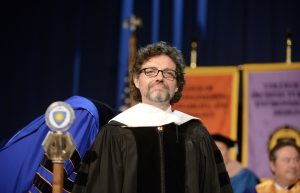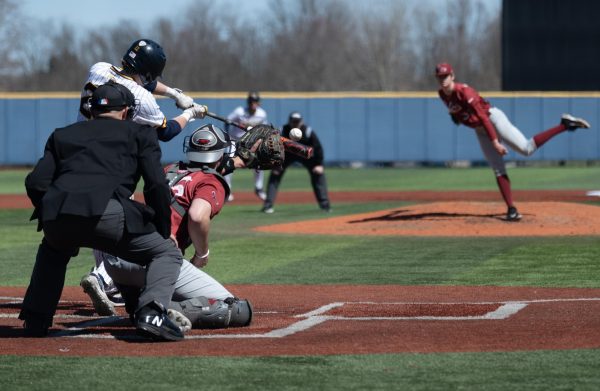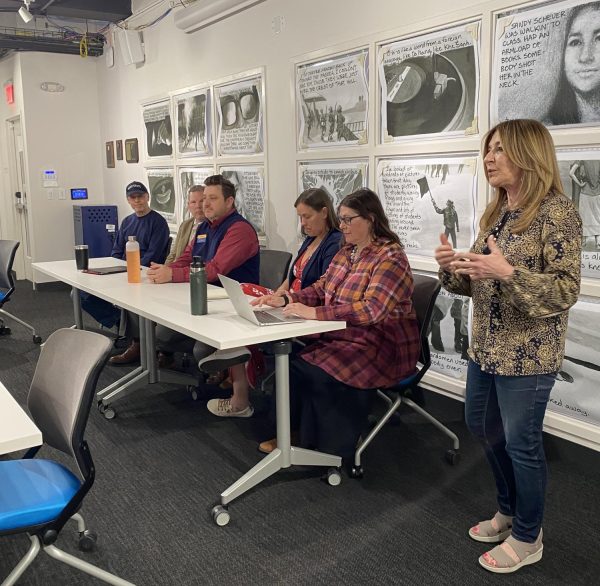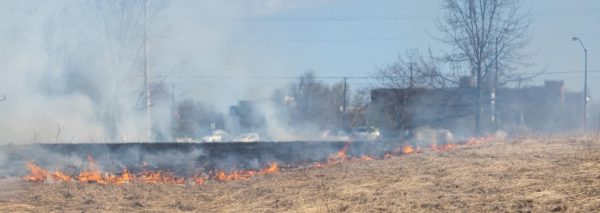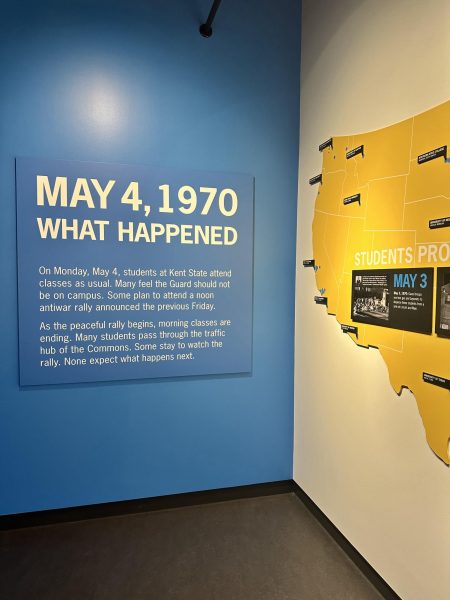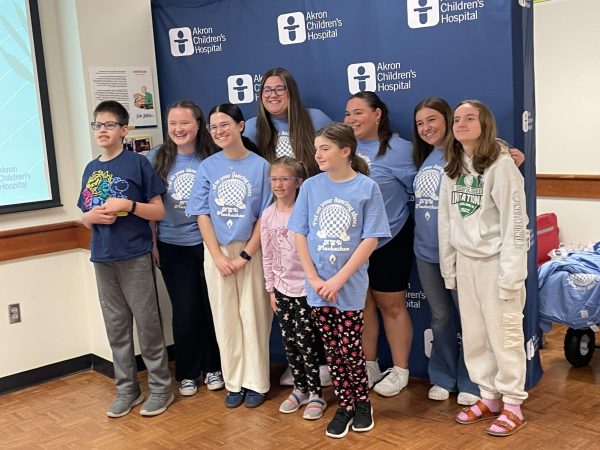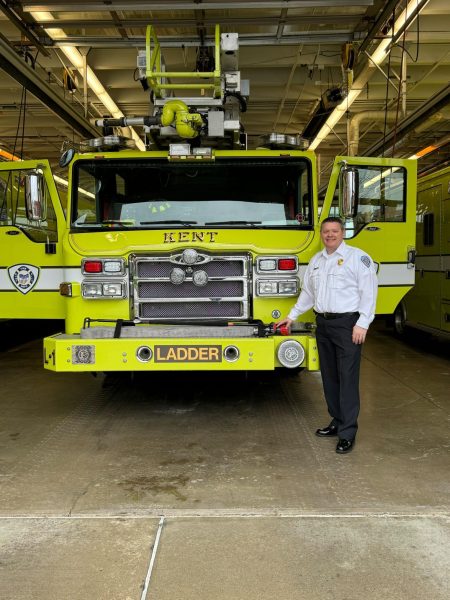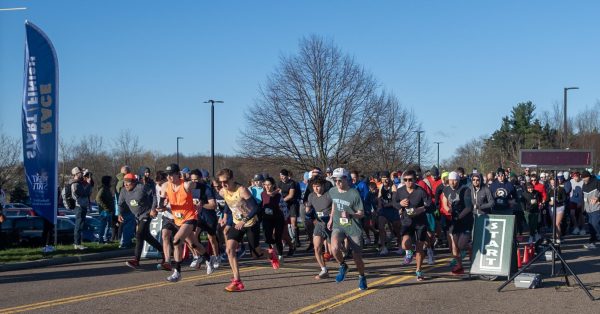Documentary screening looks at Native Americans in America
November 5, 2016
The screening of the film “Our Fires Still Burn: The Native American Experience,” was open for Kent State students to view in Oscar Ritchie Hall on Friday evening.
This screening also included a discussion portion with Audrey Geyer, the director of the documentary.
Geyer, according to her website, is an independent video producer and director, with her work having been broadcast on local stations and ‘PBS.’
Denise Harrison, a lecturer with the Department of Pan-African Studies, was initially told about the film, and worked with her discussion facilitator Kimberlee Medicine Horn Jackson to make the event happen.
The first half of the documentary focused on the mistreatment of Native Americans in the past, particularly with the use of eradicating their culture through government run boarding schools in the late 1800s through the mid-1900s.
The schools fostered an abusive environment and an entire generation was forced to give up their culture and assimilate.
This left many lasting negative effects on Native American communities that are still relevant today.
The second half of the film focused on efforts within several Native American communities in Michigan, to address negative stereotypes and break cycles of abuse, poverty and alcoholism that are often associated with them.
Eryn Harper, a junior anthropology major, said the film was “very eye opening and enlightening … It’s why I study what I study.”
In the discussion that followed the film, many audience members were able to share their experiences, as well as thoughts and feelings with both Geyer and each other.
One attendee said that although she was Jewish, she had always felt a strong connection to the Native American community. She said both the Jewish people and Native Americans have similar histories, having both been the targets of genocides and discrimination in the past.
There was also discussion about the current protests at the Standing Rock Indian Reservation and the Dakota Access Pipeline in North Dakota, and how it relates to the subject matter of the history of Native American mistreatment seen in the documentary.
Another current issue that plagues the Native American community still to this day that was discussed, was the issue of the “Adoption Program,” and how children of Native American parents can be taken away from their families and placed with a non-Native American family.
Jackson said she had experienced this firsthand.
Kalayna Hill, a senior interpersonal communications major, said she was glad the department put on this event.
“You never hear much about Native Americans,” Hill said.
Hill also added that if other people were more aware and educated about Native Americans and their culture, there would be less insensitivity toward them.
Nichola Nease is a diversity reporter, contact her at [email protected]









